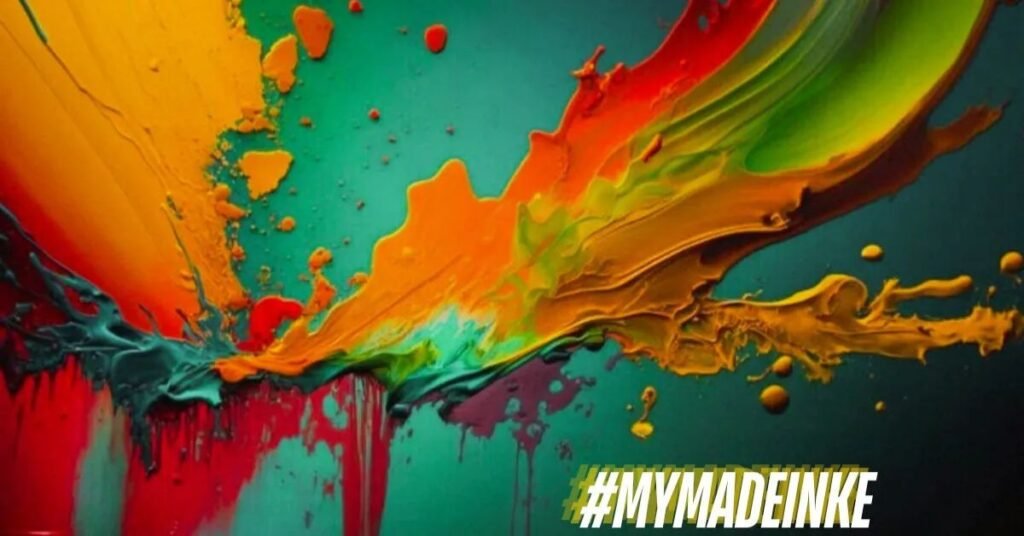Introduction
The rise of local entrepreneurship in Kenya has gained momentum with the help of the #MyMadeInKE movement. This initiative promotes Kenyan-made products and services, aiming to uplift local businesses and encourage consumers to prioritize locally produced goods. As a powerful social media-driven campaign, #MyMadeInKE has become a cornerstone for economic empowerment, cultural pride, and sustainability.
In this article, we’ll explore the significance of #MyMadeInKE, the benefits it offers to Kenyan entrepreneurs, real-world applications, and the challenges faced by local businesses in today’s market.
Detailed Explanation of Key Concepts
What is #MyMadeInKE?
#MyMadeInKE is a social media hashtag created to celebrate and promote products and services that are made in Kenya. By uniting consumers and entrepreneurs, this movement has helped to create awareness about the quality, creativity, and innovation of Kenyan goods, whether in fashion, food, technology, or handicrafts.
The Purpose of the Movement
The #MyMadeInKE initiative encourages Kenyan consumers to support local businesses, reduce reliance on imported goods, and promote homegrown talent. It’s not only about purchasing local products but also about fostering a sense of pride in Kenya’s unique cultural heritage and entrepreneurial spirit.
Key Sectors Highlighted by #MyMadeInKE
#MyMadeInKE spans various sectors, highlighting the diversity of Kenyan-made products. These include:
- Fashion: Kenyan textiles, clothing, and accessories
- Agriculture: Coffee, tea, flowers, and other organic produce
- Handicrafts: Locally made crafts, jewelry, and home decor
- Technology: Software, mobile apps, and tech innovations developed in Kenya
- Beauty: Natural skincare and haircare products using local ingredients

Importance and Benefits of #MyMadeInKE
Economic Growth
The #MyMadeInKE movement plays a critical role in driving Kenya’s economic growth. Supporting local businesses increases demand for locally sourced goods and services, creating more jobs and contributing to the overall GDP. It also encourages small and medium-sized enterprises (SMEs) to scale their operations and improve product quality.
Boosting Local Entrepreneurship
By promoting products and services under the #MyMadeInKE umbrella, entrepreneurs gain visibility. Small businesses that might not have the resources for large-scale advertising can leverage social media to showcase their work, build brand recognition, and attract new customers. The movement also inspires aspiring entrepreneurs to pursue their business ideas, knowing they have the support of a local consumer base.
Sustainability and Environmental Impact
Buying locally-produced goods helps reduce the carbon footprint associated with importing products from overseas. The #MyMadeInKE movement promotes sustainability by encouraging the consumption of goods that require less transportation, thus reducing pollution. In addition, many Kenyan entrepreneurs are committed to sustainable practices, such as using eco-friendly materials and minimizing waste in their production processes.
Cultural Pride and Identity
#MyMadeInKE isn’t just an economic movement—it’s a cultural one as well. It reinforces national pride by celebrating Kenyan creativity and craftsmanship. Wearing a locally-made garment, purchasing a handcrafted item, or drinking Kenyan coffee allows consumers to connect with their cultural heritage. The movement preserves and promotes Kenyan traditions while simultaneously showcasing the country’s modern advancements in fashion, technology, and more.
Encouraging Innovation and Competition
As the movement grows, it encourages local businesses to innovate and improve their offerings. Entrepreneurs are motivated to produce high-quality products that can compete not only in the local market but also internationally. The competition sparked by #MyMadeInKE pushes businesses to refine their production processes, packaging, and customer service, leading to better products for consumers.
Applications and Use Cases of #MyMadeInKE
Fashion Industry
Kenya’s fashion industry has witnessed significant growth, with local designers gaining recognition both domestically and globally. Designers like KikoRomeo, Adele Dejak, and Sandstorm Kenya have capitalized on the #MyMadeInKE movement to promote locally-produced fashion, jewelry, and accessories. These brands leverage the movement to appeal to a conscious consumer base that values African-inspired designs and ethical production.
Case Study: KikoRomeo
KikoRomeo, one of Kenya’s pioneering fashion houses, uses the #MyMadeInKE hashtag to highlight its locally-sourced materials and handcrafted designs. By aligning with the movement, the brand has attracted a loyal customer base that values authentic Kenyan fashion.
Food and Beverage Industry
Kenyan agricultural products, such as coffee, tea, honey, and spices, are globally renowned for their quality. The #MyMadeInKE movement has allowed Kenyan food producers to market their goods more effectively, both locally and internationally. By emphasizing local ingredients and sustainable farming practices, the movement aligns with consumers’ growing demand for transparency and ethical production.
Case Study: Dormans Coffee
Dormans Coffee has embraced the #MyMadeInKE movement by showcasing its commitment to sourcing coffee beans from local Kenyan farmers. The brand uses the hashtag to educate consumers about the origins of their coffee and to promote the rich flavors of Kenyan-grown beans.
Handicrafts and Home Decor
Kenya’s rich artisanal traditions have gained international acclaim. Products such as beaded jewelry, woven baskets, and wooden carvings reflect the country’s cultural heritage. The #MyMadeInKE movement supports artisans by giving them a platform to sell their products online and at local markets. It allows tourists and locals alike to appreciate and invest in Kenya’s handcrafted goods.
Case Study: Kazuri Beads
Kazuri Beads, a brand that produces handmade ceramic jewelry and pottery, has leveraged #MyMadeInKE to promote its products to global audiences. The brand emphasizes its social impact by employing local women, ensuring that its products not only celebrate Kenyan craftsmanship but also uplift communities.
Tech Industry
Kenya, often referred to as “Silicon Savannah,” has made significant strides in the tech industry, with innovations such as mobile money platform M-Pesa revolutionizing financial services. Kenyan tech startups are using the #MyMadeInKE movement to highlight locally-developed solutions tailored to African markets. This movement helps tech entrepreneurs gain visibility and attract investment from both local and international sources.
Case Study: M-Pesa
M-Pesa has become synonymous with Kenyan innovation. Although widely recognized, the company continues to use #MyMadeInKE to reinforce its identity as a homegrown success story, driving both national pride and international attention to Kenya’s tech ecosystem.
Beauty and Skincare Industry
The beauty industry in Kenya is experiencing rapid growth, with brands focusing on natural, locally-sourced ingredients. Skincare and haircare products made with ingredients like shea butter, aloe vera, and essential oils are gaining popularity among consumers looking for eco-friendly and sustainable alternatives. #MyMadeInKE provides these brands with an opportunity to market their products to a socially-conscious audience.
Case Study: Marini Naturals
Marini Naturals is a leading Kenyan brand offering haircare products made from natural ingredients. By incorporating the #MyMadeInKE movement into their marketing, the brand has tapped into a growing demand for organic and locally-sourced beauty solutions, building a strong customer base in Kenya and across Africa.
Challenges and Solutions
Challenge 1: Limited Consumer Awareness
Despite the success of the #MyMadeInKE movement, many consumers remain unaware of the benefits of purchasing locally-made products. Imported goods often dominate the market, and some consumers may still perceive them as superior in quality.
Solution: Education and Awareness Campaigns
Entrepreneurs and local organizations can collaborate to launch educational campaigns highlighting the value of #MyMadeInKE products. By showcasing the craftsmanship, quality, and cultural significance of local goods, these campaigns can help change perceptions and encourage more people to buy Kenyan-made products.
Challenge 2: Limited Access to Capital
Many Kenyan entrepreneurs struggle to secure the funding needed to scale their operations, develop new products, or invest in marketing. This financial limitation can prevent them from fully benefiting from the #MyMadeInKE movement.
Solution: Government and Private Sector Support
To address this challenge, both government initiatives and private sector investors need to offer more financial support to local businesses. Grants, low-interest loans, and investment programs can help entrepreneurs access the capital needed to grow. Crowdfunding platforms and venture capital can also play a critical role in supporting local startups.
Challenge 3: International Market Penetration
While #MyMadeInKE has gained traction locally, many Kenyan businesses struggle to expand their presence in international markets. Navigating the complexities of exporting, such as logistics, trade regulations, and foreign competition, can be difficult for SMEs.
Solution: Leveraging E-Commerce and Export Partnerships
Kenyan businesses can overcome these hurdles by using e-commerce platforms to reach international consumers. Additionally, building partnerships with export agencies like the Kenya Export Promotion and Branding Agency (KEPROBA) can help simplify the export process and connect businesses with global buyers.
Challenge 4: Consumer Misconceptions About Quality
Some Kenyan consumers still view imported goods as being of higher quality than locally-made products, which can create a barrier for #MyMadeInKE brands.
Solution: Demonstrating Quality and Building Trust
Local businesses can shift these perceptions by focusing on quality control, customer service, and transparent production processes. Offering warranties, return policies, and guarantees can also help build trust with consumers. Regularly engaging with customers through social media and reviews will further demonstrate the commitment to quality.
Conclusion
The #MyMadeInKE movement has successfully brought attention to the incredible talent, creativity, and innovation emerging from Kenya’s local businesses. By prioritizing Kenyan-made products, consumers are contributing to the country’s economic growth, supporting local entrepreneurs, and reducing the environmental impact of imported goods.
From fashion and food to tech and beauty, #MyMadeInKE touches every industry, offering a platform for businesses to thrive. However, challenges remain, and continued efforts are needed to raise awareness, improve access to capital, and shift consumer perceptions.
Ultimately, the movement represents a brighter future for Kenya, one where homegrown talent is celebrated, businesses flourish, and consumers proudly champion products made in their homeland.
FAQs
1. What is #MyMadeInKE?
#MyMadeInKE is a social media-driven movement promoting Kenyan-made products to boost local businesses and foster national pride.
2. How does #MyMadeInKE benefit the Kenyan economy?
The movement supports job creation, reduces reliance on imports, and encourages economic growth by promoting locally-made goods.
3. What industries are involved in the #MyMadeInKE movement?
Industries such as fashion, agriculture, technology, handicrafts, and beauty are all represented in the #MyMadeInKE movement.
4. How can businesses use #MyMadeInKE to grow?
Businesses can leverage the hashtag to increase visibility, connect with local and international consumers, and showcase their commitment to quality.
5. What challenges do Kenyan entrepreneurs face with #MyMadeInKE?
Challenges include limited consumer awareness, access to capital, international market penetration, and perceptions of product quality.




